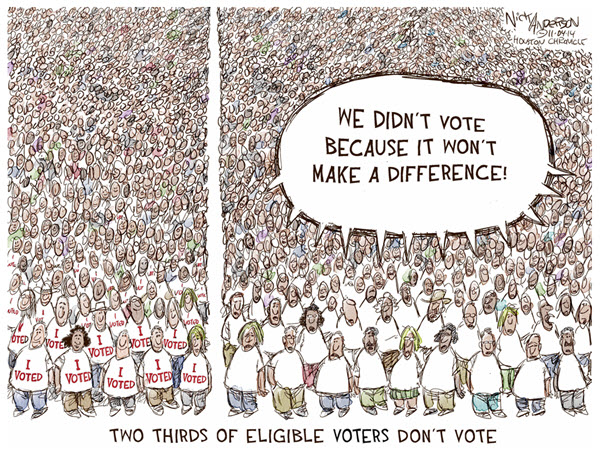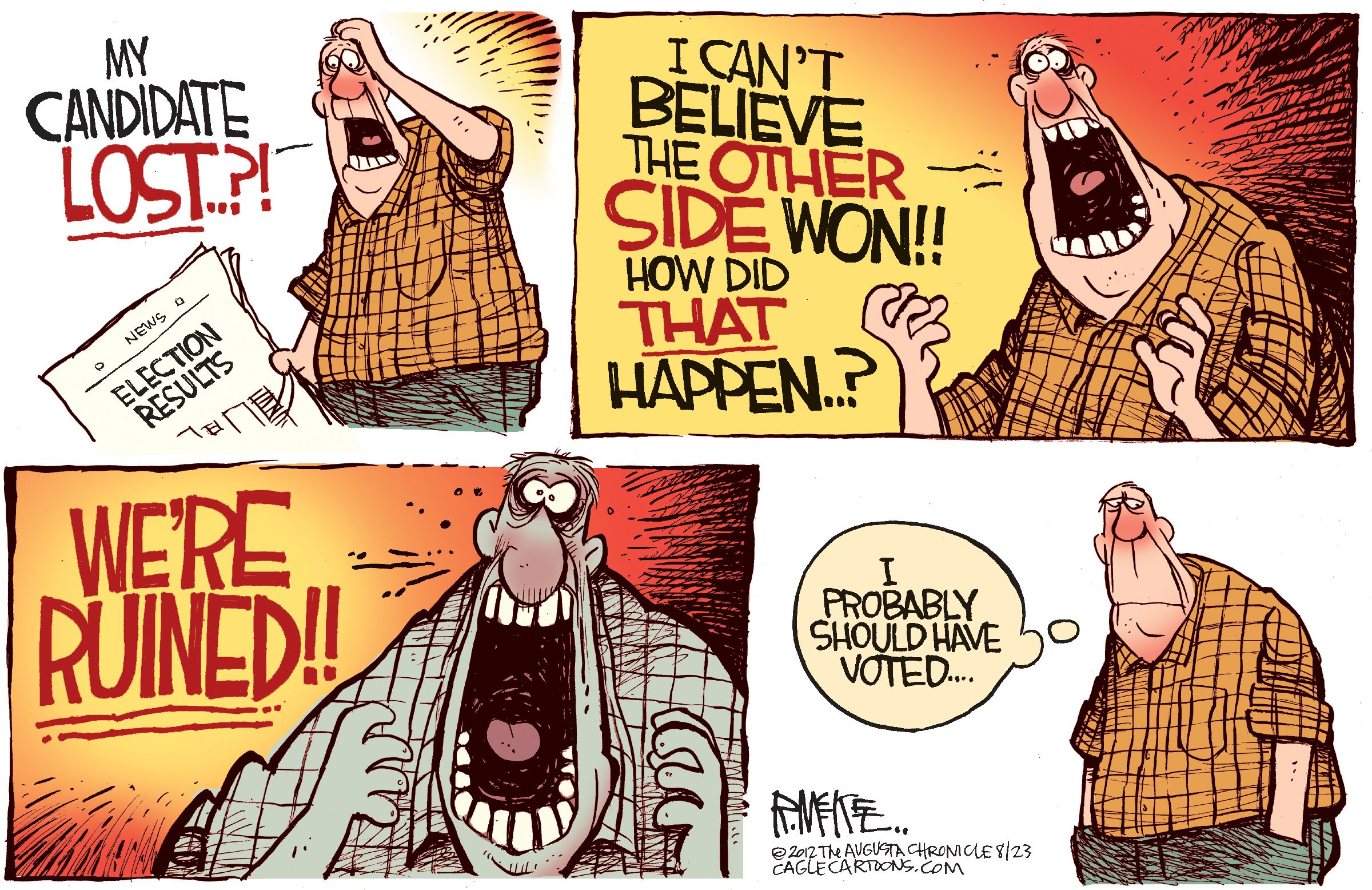Five Reasons
“Why should I vote?”
We’re so glad you asked. At iVoterGuide, we want to equip you to make informed decisions and be able to educate others – and not just on which candidates you choose once you get to the polls.
We want you to understand WHY you should vote. Who says so? Does it make a difference? What if you don’t like the choice of candidates, should you still vote?
From scriptures to civics and family legacies, let’s talk voting.
Reason #1
The Bible is clear that we should care about who governs, obey legitimate authority, and be salt and light in a world of darkness.
Is the Bible silent on government and elections? Far from it.
Although in Biblical times, people were under Jewish law and did not vote, we can look at Acts 6:1-5 and see that the disciples called on the congregation to elect seven men who would be devoted to minister the Word of God. The congregation chose Stephen, Philip, Procorus, Nicanor, Timon, Parmenas, and Nicolas from Antioch, a convert to Judaism. Like them, we should choose those who “are full of the Spirit and wisdom.”
We can also see the importance of government authority in Romans 13 when we are told directly, “Let every person be subject to the governing authorities. For there is no authority except from God, and those that exist have been instituted by God.” Matthew 22:21 also instructs us to “render to Caesar the things that are Caesar’s, and to God the things that are God’s.”
Finally, in Proverbs 14:34 we see that “righteousness exalts a nation, but sin is a reproach to any people.”
So how do we take part in making a nation righteous? We must be salt and light.
“You are the salt of the earth, but if salt has lost its taste, how shall its saltiness be restored? It is no longer good for anything except to be thrown out and trampled under people's feet.” Matthew 5:13 (ESV)
If you have spent much time listening to good Bible teachers, you have heard a message or two about salt. In modern times, we mostly think of salt as something that brings out the flavor in our food. Salt even finds its way into dessert as science has taught us that adding a bit of salt can actually improve our perception of sweetness as well. Well, before the days of refrigeration, salt was also a method of food preservation.
As Christians, we are called to be “the salt of the earth” according to Jesus in the Sermon on the Mount as written in Matthew. Our charge is to flavor and preserve the earth. One of the ways we share that salt to flavor and even preserve the world around us is to influence who manages our government by participating in the election process and voting. When we choose not to vote, we walk away from our chance to make a difference.
Reason #2
We are to be good stewards of all that God has given us – including our citizenship.
In Romans 13:1-2, the Word tells us, “Be a good citizen. All governments are under God. Insofar as there is peace and order, it's God's order. So live responsibly as a citizen. If you're irresponsible to the state, then you're irresponsible with God, and God will hold you responsible.”
Our form of government is based on “We, the People.” We are not subjects of benevolent (or not so benevolent) leader. God has given us the privilege of living in the United States, and just as with any other good gift or talent from God, we are called to be good stewards. The blessing carries with it a responsibility.
In Matthew 25 the Master of the servant who has best used his talent says to him, “‘Well done, good and faithful servant. You have been faithful over a little; I will set you over much. Enter into the joy of your master.’” As Americans, our vote is one of our ‘talents;’ we must use it wisely.
The freedom we have is no small thing, and in our Constitutional Republic, citizens must participate in order for our governance to reflect Godly leaders.
If you would like to read more about Christian citizenship, download a free copy of "Your 7 Duties As a Christian Citizen" from the Act section of our website.
Reason #3
Elected officials determine laws that affect us – whether we vote or not, and those laws effect our ability to live out our beliefs.

In America, we have the distinct right – and privilege – to choose those who will cast votes determining how we live. We have the power to change government. In fact, the Declaration of Independence specifically says that “governments are instituted among men, deriving their just powers from the consent of the governed.”
When was the last time you were dissatisfied with the actions of an elected government official? How about the actions of someone in government that was appointed by an elected official? You probably don’t have to think back too far. Likewise, you can most likely recall times when you were gratified by the decisions that were made. These times should be the catalyst to build our zeal to share our input at the ballot box. By arming ourselves with facts and testing those facts against prayerful reflection and Biblical values, we can be assured that we have made informed choices and exercised our right to vote regardless of the outcome.
We live with the choices that are made in elections, and the best time and place to hold our elected officials accountable--and stop bad policies--is at the ballot box on election day. Far too often we are forced to mitigate damage from bad laws or rulings after the people who enacted them, or those who appointed the people who enacted them, have been elected.
When “We The People” put a leader in place through an election, we collectively grant our consent over the actions they will take to govern us through the term of their office. Don’t forfeit your voice.
“Let us never forget that government is ourselves and not an alien power over us. The ultimate rulers of our democracy are not a President and senators and congressmen and government officials, but the voters of this country.” - Franklin D. Roosevelt
President Roosevelt was right; ultimately, WE are the government. When we choose not to cast our vote in an election, we walk away from a responsibility to participate in determining who our leaders are and what message they receive from us about our expectations of how we want to be governed.
Reason #4
Every vote matters.
In recent years, more elections than ever are being decided by the slimmest of margins.
iVoterGuide
has devoted an entire article on
the subject, but one only needs to look at the 2022 U.S. Senate Republican primary
in Pennsylvania, where the winning candidate was decided by less than
1,000 votes. Or consider a U.S. House race in Iowa in 2020, where the margin
of victory was a mere six votes! Those six people who voted were the
deciding factor between having a Representative whom iVoterGuide rated
“Conservative” versus one whom we rated “Verified Liberal.”
You may also recall that in Virginia in 2017, one race was decided by drawing lots following a tie and months of judicial wrangling.
Don’t leave your future and your children’s future to chance. Your vote matters.
Reason #5
We impact future generations.
Our children and our children’s children are impacted by how we vote and by the actions taken by officials we elect – or by judges appointed by elected officials.
The impact of our votes on the judiciary alone is sobering when we look at Roe v. Wade and its reversal after nearly half a century of unconstitutional rule . . . and millions of lives lost. Voters were partially responsible for both decisions made by justices who were appointed by the President and confirmed by the Senate.
What other laws can you think of that have been filed or passed that would change lives? Here are just a few real-life examples:
- A school district policy requiring teachers to use students’ preferred pronouns.
- A city council ordinance banning sidewalk counseling and prayer within a certain distance of abortion facilities.
- A law or executive rule requiring faith-based organizations to adopt policies that violate their beliefs.
We must also remember that we impact our children not just with our vote, but with our example. Are we setting an example of someone who goes along with government decisions without participation, or are we leaving a legacy, as our forefathers did, as people who would devote our “lives, fortunes, and sacred honor” for liberty?
“Duty is Ours, Results are God’s” – John Quincy Adams
Whatever your reason for voting – and as you can see, there are many – it all comes down to duty. Our nation was born from stout-hearted patriots who knew their duty and did it, even when the odds were against them. So even if you have concerns about the integrity of the election process, you still have a civic responsibility to vote.
As you preserve this country by being a good steward of your vote, iVoterGuide is here to give you information on the candidates so that you can choose wisely and elect those who most closely share your values.
By arming ourselves with facts and testing those facts against prayerful reflection and biblical values, we can be assured that we have made informed choices and carried out our duty regardless of the outcome.
We pray you will take this time to educate others about why they should vote – and remind them to use iVoterGuide before they go to the polls.
